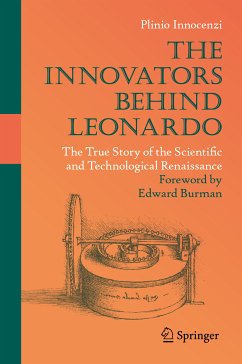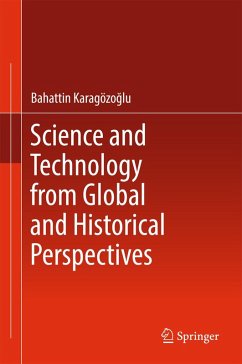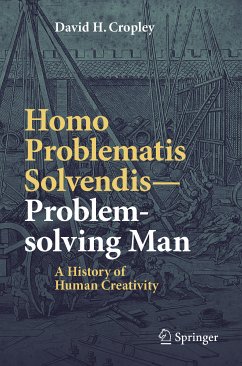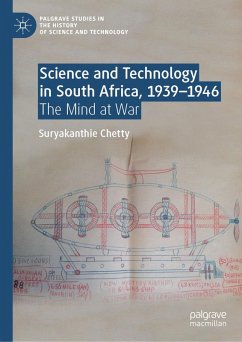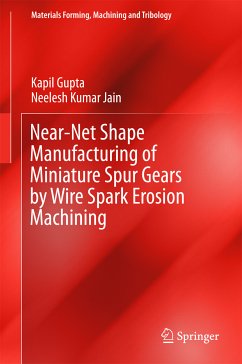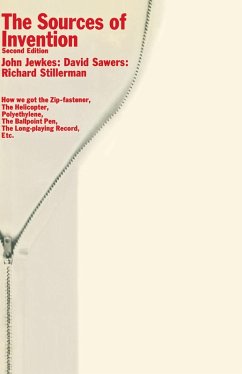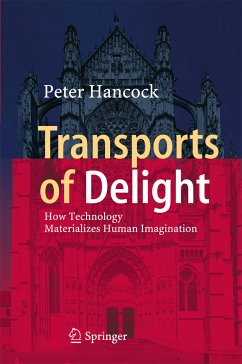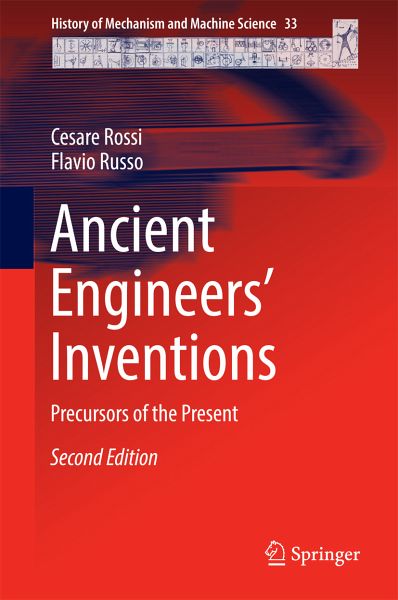
Ancient Engineers' Inventions (eBook, PDF)
Precursors of the Present
Versandkostenfrei!
Sofort per Download lieferbar
120,95 €
inkl. MwSt.
Weitere Ausgaben:

PAYBACK Punkte
60 °P sammeln!
This book describes the inventions and designs of ancient engineers who are the precursors of the present. The period ranges mainly from 300 B.C. to 1600 A.D. with several exceptions. Many of the oldest inventions are documented by archaeological finds, often very little known, mainly from Pompeii, Herculaneum and Stabiae and reveal a surprising modernity in their conception.Most of the inventions presented in the first four parts of this book were conceived up to the late Roman Empire and may be considered as milestones, each in their respective field. The fifth part concentrates on more rece...
This book describes the inventions and designs of ancient engineers who are the precursors of the present. The period ranges mainly from 300 B.C. to 1600 A.D. with several exceptions. Many of the oldest inventions are documented by archaeological finds, often very little known, mainly from Pompeii, Herculaneum and Stabiae and reveal a surprising modernity in their conception.
Most of the inventions presented in the first four parts of this book were conceived up to the late Roman Empire and may be considered as milestones, each in their respective field. The fifth part concentrates on more recent centuries. The sixth part deals with some building construction techniques.
Generally, for each of the presented inventions, three elements of research and reference are provided: written documents (the classics), iconic references (coins, bas-reliefs, etc.) and archaeological findings.
The authors did not write this book for engineers only; hence they describe allthe devices without assuming wide technical knowledge. The authors' main aim is to try to communicate their enthusiasm for the inventions and the inventors of the past and to contribute to the fascinating study of the History of Engineering.
This second edition includes new topics and chapters that are of special interest to engineers.
Most of the inventions presented in the first four parts of this book were conceived up to the late Roman Empire and may be considered as milestones, each in their respective field. The fifth part concentrates on more recent centuries. The sixth part deals with some building construction techniques.
Generally, for each of the presented inventions, three elements of research and reference are provided: written documents (the classics), iconic references (coins, bas-reliefs, etc.) and archaeological findings.
The authors did not write this book for engineers only; hence they describe allthe devices without assuming wide technical knowledge. The authors' main aim is to try to communicate their enthusiasm for the inventions and the inventors of the past and to contribute to the fascinating study of the History of Engineering.
This second edition includes new topics and chapters that are of special interest to engineers.
Dieser Download kann aus rechtlichen Gründen nur mit Rechnungsadresse in A, B, BG, CY, CZ, D, DK, EW, E, FIN, F, GR, HR, H, IRL, I, LT, L, LR, M, NL, PL, P, R, S, SLO, SK ausgeliefert werden.




